How To Throw a Dinner Party for Your Gut Bacteria
By some estimates, we each walk around with at least three pounds of gut bacteria. And they’re not just sitting there minding their own business. Those bugs you harbor influence your wellbeing, including very likely your blood sugar control and your chances of developing prediabetes, type 2 diabetes and a host of other chronic conditions. Here are ways you can help feed healthy gut bacteria.

© Can Stock Photo / TLFurrer
We have about 300 species of gut bacteria. In fact, there are about 10 times more bacteria cells in your intestines than there are human cells throughout your entire body!
Collectively, the microbes residing in the intestines comprise nearly two million genes (called the microbiome). The microbiome is about 100 times greater than the human genome or the number of human genes. So with vastly more bacteria genes that human genes, it’s not so hard to imagine that gut bacteria affect your health and risk for disease. Of course, we want to know what to feed those bugs to make them happy and to help them thrive. More on that in a bit.
Gut Bacteria Affect Your Entire Body
Researchers have known for a long time that healthful gut bacteria do the body good. Among other things, they
- synthesize vitamins
- break down cancer-causing compounds
- affect immune function
- activate disease-fighting compounds in foods
- create compounds that protect the colon cells
- produce fatty acids that improve cholesterol levels
But this is probably just a dot of what they do. So much more is being studied and learned. Now, how cool is that?
Gut bacteria might even affect your risk of gaining too much weight. Some recent studies show that people with obesity have less diverse bacterial species. They also tend to have more bacteria that are quite good at digesting the remnants of our meals, leaving us to absorb additional calories that would have otherwise been excreted into the stool. So is it possible that having an abundance of this type of bacteria leads to weight gain by making more calories available, or is it possible that having obesity leads to more of these bacteria in the intestines? Both are possibilities and may actually occur at the same time.
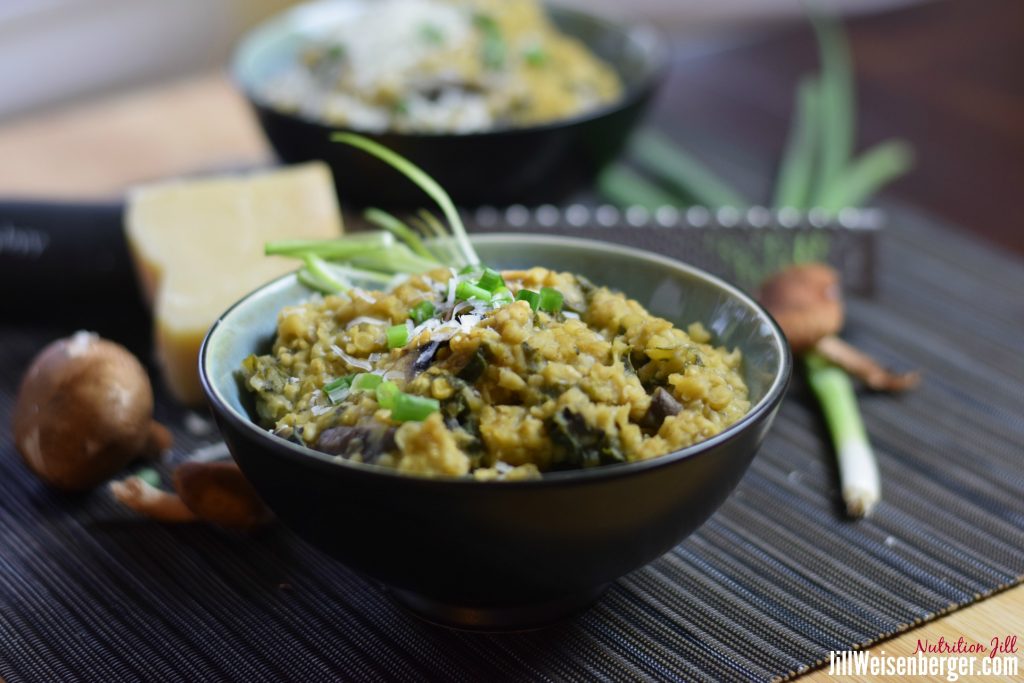
Savory Oats and Lentils feed your gut bacteria
Additionally, the types of predominant bacteria in your intestines may influence inflammation, insulin resistance and even hormones that help to regulate appetite. Researchers find that some harmful compounds produced by undesirable species of gut bacteria can promote cancer, influence the development of autoimmune diseases and lead to metabolic syndrome. I recently learned at a sponsored conference that gut bacteria affect our moods. Lenore Arab, MSc, PhD, professor at the David Geffen School of Medicine at UCLA explained that there are at least 5 communication pathways between the gut and the brain. Who knew!
Gut bacteria affect cholesterol, blood sugar, body weight, cancer risk and more. Feed them right.Click To Tweet4 Things You Can Do To Help Feed Healthy Gut Bacteria
The gut microbiome is far more complicated than this brief description. And far more complicated than I could ever hope to understand. Scientists continue to untangle the roles that gut bacteria and other microbes play in our wellbeing. It seems that these little critters affect nearly every aspect of our health. When I think about that, it’s a little overwhelming. So here are my takeaways when it comes to how to feed healthy gut bacteria.
- Don’t rely too heavily on probiotic supplements. Probiotics are live microbes known to be beneficial to health. As of yet, research doesn’t tell us which specific strains meaningfully improve insulin resistance, diabetes, mood and many other problems. In most cases, it’s probably the mix of microbes in the gut that’s important, not a single strain. Researchers know more about some problems associated with diarrhea, ulcerative colitis and irritable bowel syndrome (IBS), but we can’t expect a probiotic that improves symptoms associated with IBS, for example, to help with insulin resistance and vice versa. That’s like expecting a cholesterol medication to improve pain related to arthritis. Just like medications have different effects, probiotics have different effects. Additionally, probiotics typically change the composition of the microbiota only while taking the probiotic supplement and shortly after discontinuing it. When I need credible information about a probiotic to help with a specific problem, I look to the World Gastroenterology Organisation. Their guidelines include a table identifying probiotics found to be beneficial for various, specific concerns like diarrhea related to antibiotic use. And check out my interview with an expert about how to pick the best probiotic.
- Enjoy fermented foods with live bacteria. We do know that yogurt is associated with less incidence of type 2 diabetes. But we don’t know if that’s because of yogurt’s probiotics or if it’s because of any number of other reasons. Other foods with probiotics include kefir, kimchi, some pickles and sauerkraut. Whether they’ll help specifically with blood sugar, cholesterol, mood or other concerns we don’t know. But they’re nutritious foods that offer a host of benefits.
- Eat a plant slant diet with lots of fiber. Dr. Arab pointed out that what we eat determines who lives and dies in our guts. She emphasized that our food choices are much more important than probiotic supplements. Indeed, studies suggest that a Western-style of eating – a diet heavy in animal protein, animal fat, refined grains and added sugars is associated with a less healthy mix and less diversity of intestinal bacteria. On the other hand, dietary patterns that include an abundance of whole grains, fruits, vegetables, nuts and legumes are associated with a healthy mix of gut bacteria and health benefits. When you eat a large variety of plant foods, you’ll get prebiotics and fermentable fibers that feed your gut bacteria. Foods with prebiotics include asparagus, leeks, onions, garlic, wheat, oats and soybeans. Emerging research suggests that walnuts may also have prebiotic effects. At the same meeting, Daniel W. Rosenberg, PhD, professor of medicine at University of Connecticut School of Medicine showed new research suggesting that eating walnuts can alter gut bacteria in a way that suppresses colon cancer. (This was a mouse study, by the way. But a separate study showed that eating walnuts for 8 weeks led to favorable changes and diversity of the microbiome in humans.) And Dr. Arab shared information from diet history studies that shows that people who eat walnuts have lower depression scores, which could also be related to the microbiome. For more about how fibers affect gut bacteria, check out Which Foods are the Best Sources of Prebiotics.
- Take an antibiotic only when necessary. When you take one, it alters the microbiota. However, don’t resist an antibiotic when it’s needed.
Interestingly, even though this is a very complex topic, my dietary advice is very simple and consistent with previous advice: Eat a variety of foods within a variety of food groups, and make sure to include ample fruits, vegetables, whole grains, legumes and nuts. What you eat matters because each meal is also a meal for the community of organisms (the microbiota) living in your gut. So plan that dinner party accordingly! Enjoy!
Filed Under: Diabetes, Nutrition, Science of Healthy
Tagged: blood sugar, diabetes, fiber, gut bacteria, heart healthy, microbiome, prediabetes
Jill Weisenberger
I'm Jill, and I believe simple changes in your mindset and health habits can bring life-changing rewards. And I don't believe in willpower. It's waaaay overrated. As a food-loving registered dietitian nutritionist, certified diabetes care and education specialist and certified health and wellness coach, I've helped thousands of people solve their food and nutrition problems. If you're looking for a better way to master this whole healthy eating/healthy living thing or if you're trying to prevent or manage diabetes or heart problems, you'll find plenty of resources right here.
Leave a Reply
5 Comments
Leave a Comment
Welcome to my Blog
Hi there! I'm Jill, a nutrition & diabetes expert and the author of 4 books.

I believe simple changes in health habits can bring you life-changing rewards.
And I believe willpower is way overrated.
Right here is where you can discover the mindset and habits to stick with healthy lifestyle choices most of the time - and drop the guilt when you don't.
Get the Second Edition!

Featured Posts



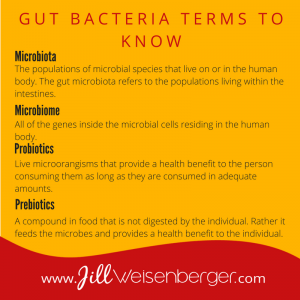

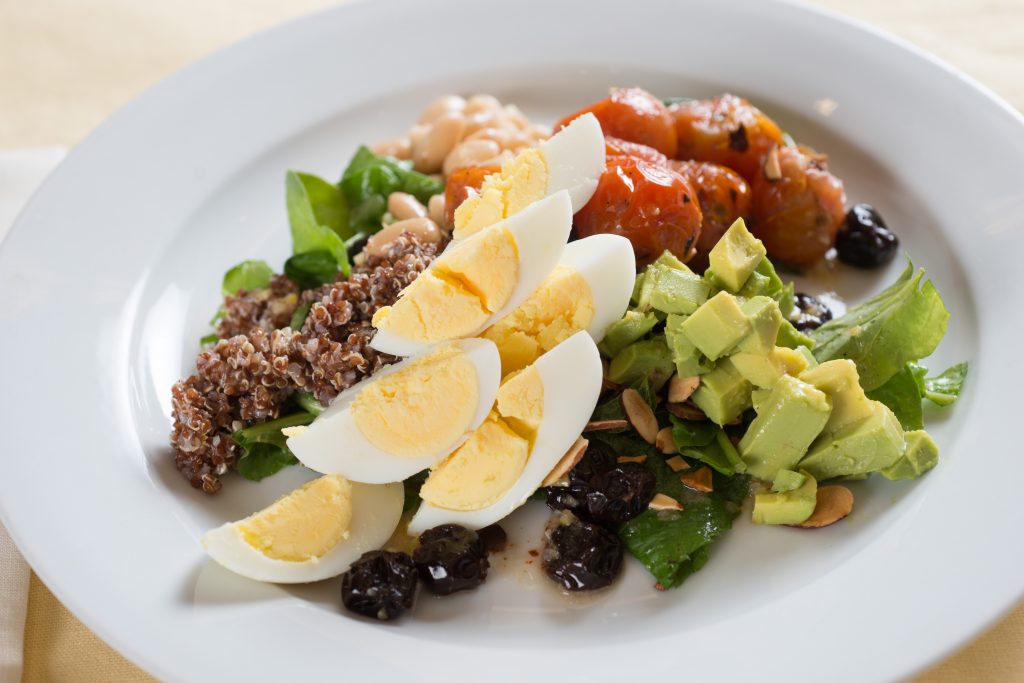

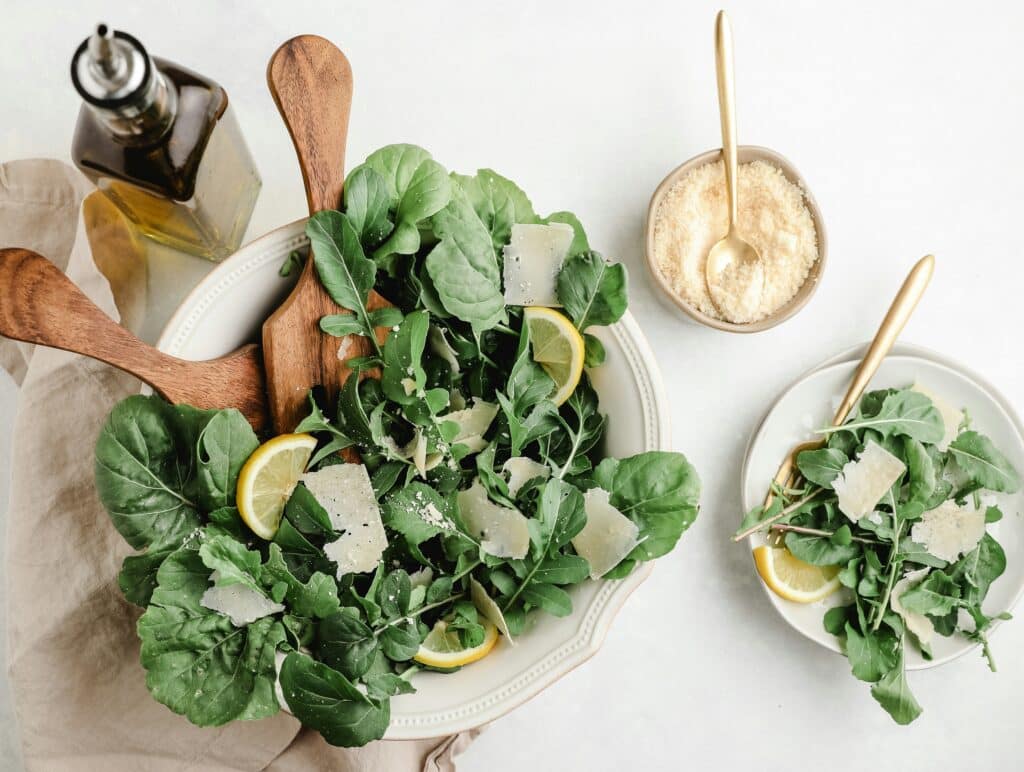

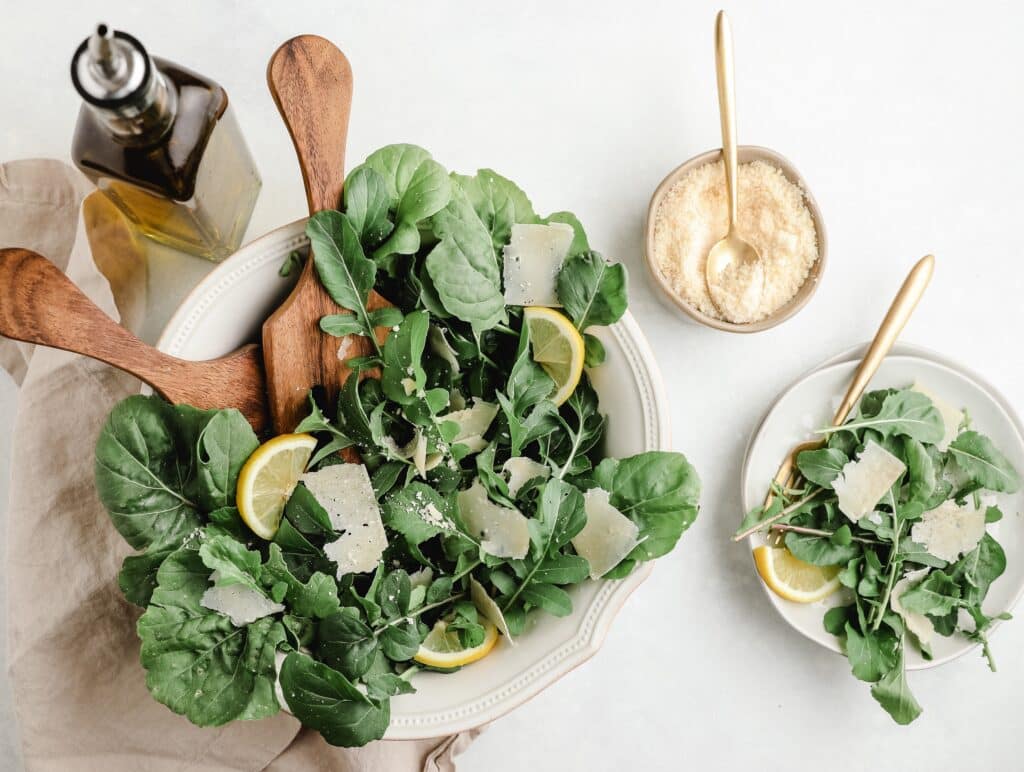
Fabulous article Jill. My mind is blown by the complexity of it all! The vocabulary was also an eye opener for me. I had heard all the terms and thought I knew what they meant, but My understandings were not accurate.
I’m right there with you! My mind is also blown. I can’t wait to see what the research will tell us in another 5 or so years.
Hello Jill! Outstanding article! You took a very complex topic a made it understandable. Your thoughts are consistent with mine as I navigate MDs to assist with post cdifx3 and severe abdominal pain. What’s your thoughts on fecal matter transplants? Glad that you appear to be doing well. Your excellent writing skills from way back to our college friendship really shines. Thank you for posting!
I so appreciate your sweet comments, especially since you are the person who introduced me to this fabulous career! I know nothing firsthand about fecal transplants, only what I’ve read. It certainly sounds like it can be very helpful to those who are so sick.
I found this article very interesting about How To Throw a Dinner Party for Your Gut Bacteria, thanks for the explanation and your effort